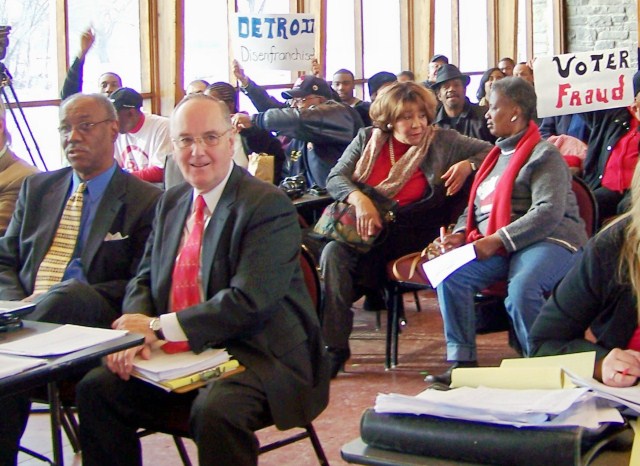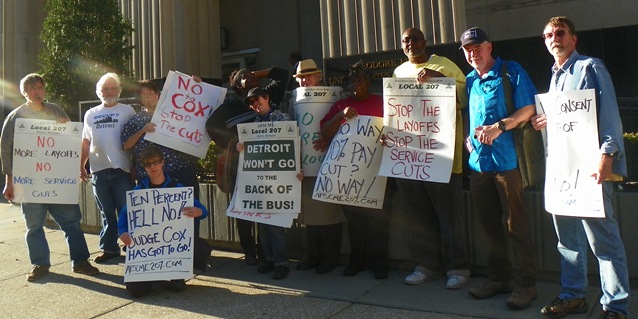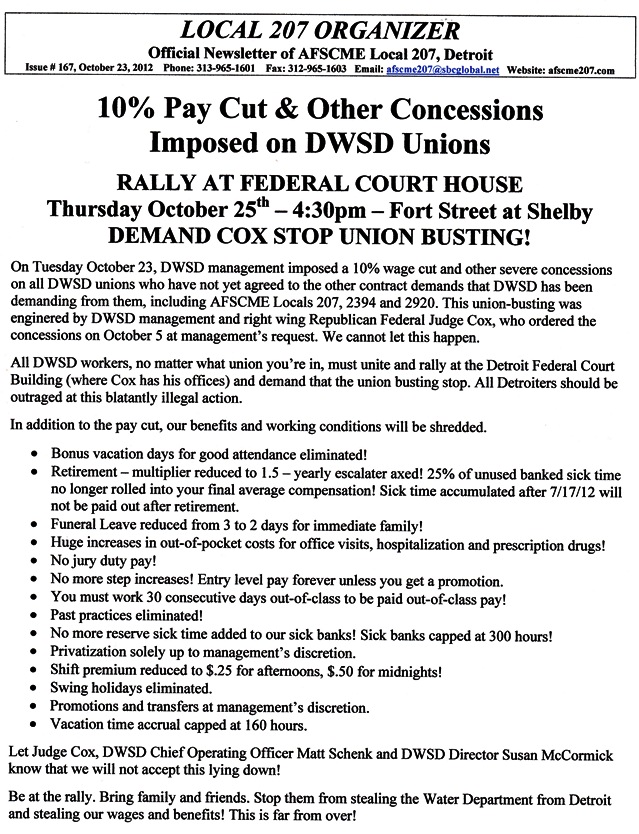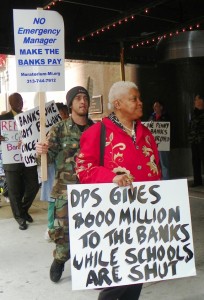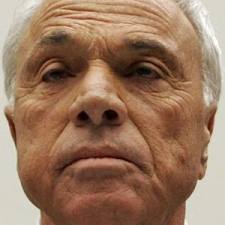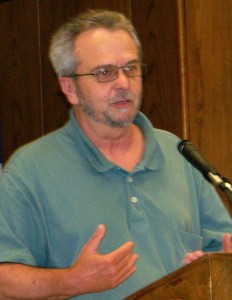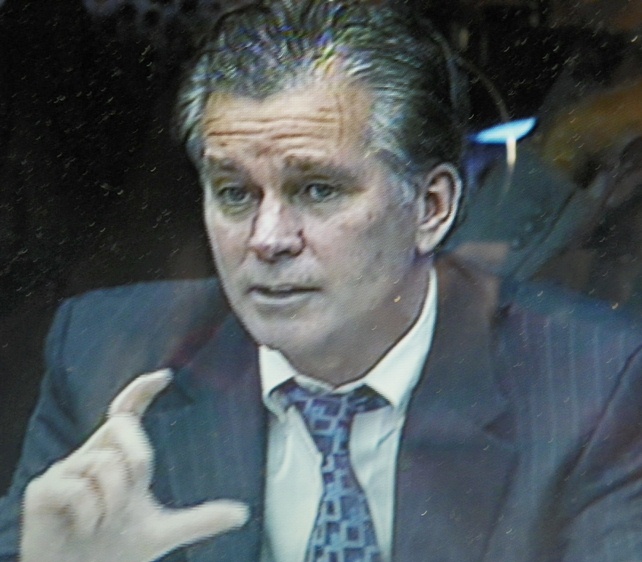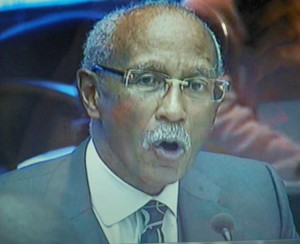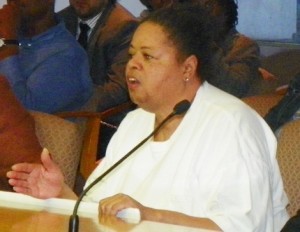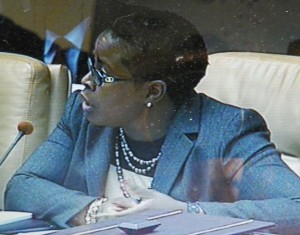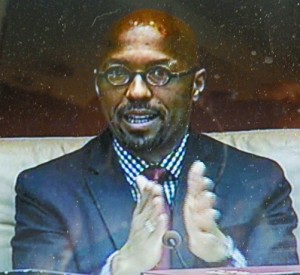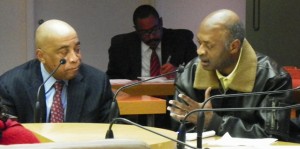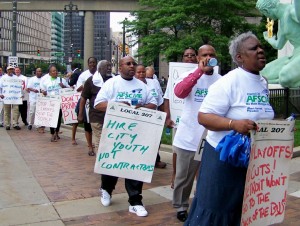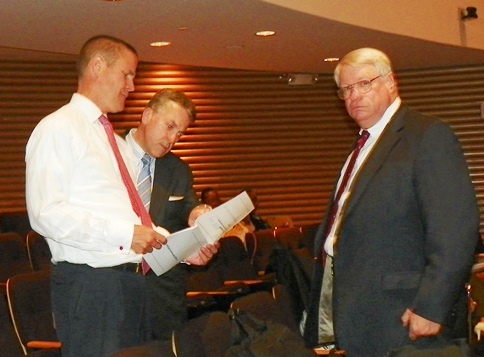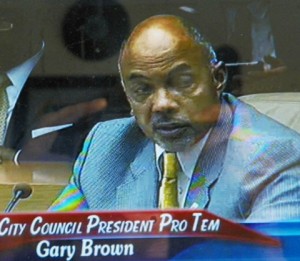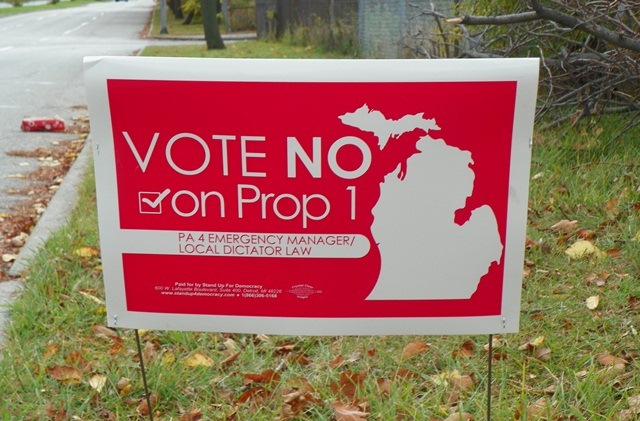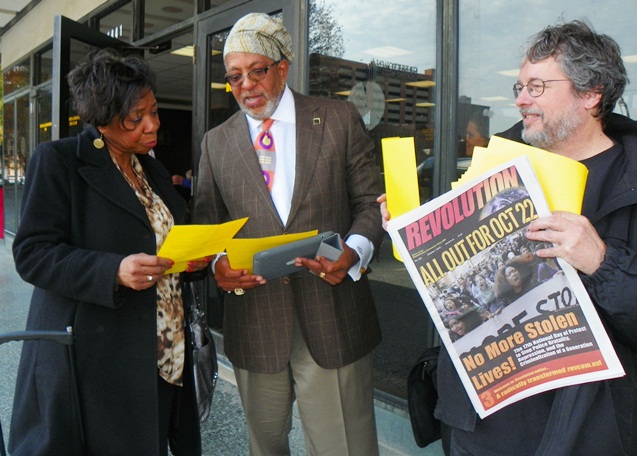BY RT.COM | LAST UPDATED: OCT 25, 2012 – 10:25:30 AM
Re-published in The Final Call http://www.finalcall.com/artman/publish/World_News_3/article_9307.shtml
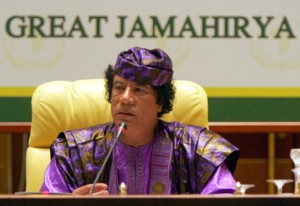
Col. Muammar Gadhafi, leader of the Libyan People’s Jamahirya and also of the African Union, had proposed separate African currency, army to unite continent.
Also article in San Francisco Bay View:
http://sfbayview.com/2012/bani-walid-pays-price-for-refusing-to-accept-the-mark-of-the-beast/
(RT.com) – Libyan rebels abused and mass murdered Colonel Muammar Gadhafi, his son Mutassim, and 66 loyalists, after their capture a year ago, Human Rights Watch says. It calls for an investigation and prosecution of those responsible for what they slam as a war crime.
The 50-page report “Death of a Dictator: Bloody Vengeance in Sirte” details the last hours of Muammar Gaddafi’s life on October 20, 2011, when he was caught trying to leave the city with his remaining supporters.

Bodies of apparent execution victims found at the Mahari Hotel in Sirte on October 21, 2011, the day after the final battle with the Gaddafi convoy (left). An estimated 66 captured members of the Gaddafi convoy were apparently executed at the site by opposition fighters. Human Rights Watch researchers visited the site on October 23, 2011, and found the decomposing bodies of 53 apparent execution victims, all male, still at the scene. Photo: Human Rights Watch
HRW admits difficulty in reconstructing the final days of Libya’s ex-leader since “he was surrounded by a small circle of trusted confidants and bodyguards, most of whom were killed in the attempted escape from Sirte,” stated the report.
The report relies heavily on interviews with Mansour Dhao, a senior security official and head of the pro-Gaddafi People’s Guard, and other surviving witnesses of the event. The interviews took place in Libya two days after Mr. Gadhafi’s death.
Capture, abuse, murder
Col. Gadhafi is said to have fled Tripoli with a handful of his trustful men in the end of August to his hometown of Sirte, where he “spent most of his time reading the Koran and praying,” Mr. Dhao told HRW.
“His communications with the world were cut off. There was no communication, no television, no news,” he added.

- Mutassim Gadhafi visiting U.S. Secretary of State Hilary Clinton in 2009. Clinton reportedly gave the order for his father’s execution two years later.
On Oct. 20, Col. Gadhafi’s son Mutassim deemed the situation unsafe and organized a 50-vehicle convoy for all to flee the city in the morning. The convoy consisted of 250 people, including civilians who supported Col. Gadhafi.
As the cars were trying to make their getaway, they were struck by a NATO air-fired missile, which exploded next to the car carrying Col. Gadhafi. In defense, the convoy turned on to a dirt road, but was pinned down by militia fighters and then further bombed by NATO fighter jets.

- NATO jet firing missile over Libya. Such a missile struck Gadhafi’s convoy before he, his son and 66 supporters were slaughtered by counterrevolutionaries.
After the bombings Col. Gadhafi, accompanied by 10 other people, including his bodyguards, tried to take shelter by a drainage pipe, but was once again attacked by militia.
One of Col. Gadhafi’s bodyguards reportedly threw three grenades at the rebels, but one of the grenades hit a cement wall and bounced back, injuring Col. Gadhafi and leading to his capture.
“As soon as the militia fighters had custody of Gaddafi, they began abusing him. Blood was already gushing from the shrapnel wound in his head. As he was being led to the main road, a militiaman stabbed him in his anus with what appears to have been a bayonet, causing another rapidly bleeding wound,” described the report.

- Col. Muammar Gadhfai suffers vicious beating before being executed by CIA-sponsored counterrevolutionaries.
Video clips taken of the capture suggest that after enduring abuses Col. Gadhafi was shot by militia fighters.
Report suggests that rebels took “bloody revenge” against Col. Gadhafi and his loyal supporters in light of the eight-month civil war.
An HRW team on the ground counted that 103 pro-Gadhafi supporters died during that escape. Half of those were killed by NATO bombings, and the other half was either killed in combat or executed.
On top of that, 140 Gadhafi loyalists were taken prisoner, but instead of being transferred to prison authorities, 66 of them were executed in a nearby hotel.

- A Libyan man visits the wreckage of Muammar Gaddafi’s convoy the morning after his capture and death, Oct 21, 2011. The convoy, containing some 250 people, attempted to flee Sirte before being bombed by NATO and engaging in a fierce final battle with opposition fighters. More than 105 bodies were strewn around the wreckage of the convoy. While the majority of them appeared to have been killed during the NATO strikes and the final battle, some showed signs of having been executed. The bodies of an additional 66 members of the convoy who were detained alive after the final battle were later discovered dead at the nearby Mahari Hotel, most of them apparently victims of summary executions.
Col. Gadhafi’s son Mutassim was also captured alive, according to YouTube videos taken by his captors. However, by the afternoon of the same day, Mutassim was dead with a large new wound in his throat, suggesting he was murdered, HRW concluded.
“The throat wound thus must have been inflicted after the videos of a captured Mutassim were recorded, strongly indicating that he was killed in the custody of his captors just hours after he was detained.”
HRW points out that “these killings apparently comprise the largest documented execution of detainees committed by anti-Gaddafi forces during the eight-month conflict in Libya. The execution of persons in custody is a war crime.”
Libya’s powerless authority
HRW also accuses Libyan transitional government of lack of control and unity for failing to properly investigate and prosecute those responsible for the killings in Sirte, a year after the incident.

- Aisha, daughter of Muammar Gadhafi, is calling for the International Criminal Court to investigate executions of her father, hundreds of supporters.
“To some extent, the failure of Libya’s authorities to investigate shows their continuing lack of control over the heavily armed militias, and the urgent need to bring Libya’s numerous militias under the full control of the new authorities.”
UN and International Criminal Court (ICC) have already been calling upon Libya to investigate Col. Gadhafi’s death back in October 2011.
ICC had spoken out that there were strong indications Col. Gadhafi was killed in custody, yet it left things be by letting Libya to investigate on its own.
Libya announced it had created a committee to look into circumstances of death. However, there has not been a proper update into the investigation in just under a year.
Back in January, Col. Gadhafi’s daughter Aisha hired Nick Kaufman, an Israeli lawyer, to convince the International Criminal Court to investigate the full circumstances of her father’s death, arguing that time for a proper probe is running out.
“(The investigation) would involve forensic analysis of the crime scene, ballistic analysis of the crime scene, it would involve taking detailed statements from objective and independent witnesses,” Atty. Kaufman told RT. And with time memories deteriorate, people forget, and evidence goes missing.
Yet Aisha’s efforts failed to yield results.
When HRW contacted Libya government imploring them to take action, local authorities stated that all murders were the result of Col. Gadhafi regime’s “dictatorship” and that rebels were defending themselves. However, they failed to account for those evident executions.
Published on Oct 16, 2012 by HumanRightsWatch
New evidence collected by Human Rights Watch implicates Misrata-based militias in the apparent execution of dozens of detainees following the capture and death of Muammar Gaddafi one year ago. The Libyan authorities have failed to carry out their pledge to investigate the death of dozens held in rebel custody. http://www.hrw.org/news/2012/10/16/libya-new-proof-mass-killings-gaddafi-deat…
Related news:
Libya S.O.S. Reports (LibyaSOS)
Libya Report: U.S./NATO backed regime using chemical weapons against civilians (FCN, 10-23-2012)
Neo-colonialism, chaos haunt the new Libya (FCN, 08-24-2012)
Witnessing the Transition to Fear in Tripoli, Libya (FCN, 09-16-2011)
Minister Farrakhan’s Press Conference on U.S., NATO War Against Libya (FCN Video, 06-15-2011)
Gold, Oil, Africa and Why the West Wants Gadhafi Dead (FCN, 06-07-2011)
An Analysis of Muammar al-Gadhafi’s Green Book (FCN, 06-18-2010)


